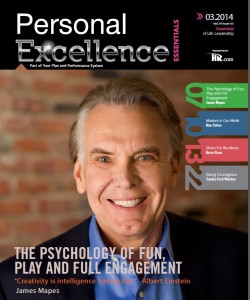 As I write this, we are sailing a 28 mile crossing In the British Virgin Islands on a beautiful day with a steady wind and modest seas in a boat appropriately named "Escape Yourself." The length of the crossing and the steadiness of the sea conditions give me pause to consider the name of the boat assigned to us.
At first I notice the immediate ways to read/hear the name:
As I write this, we are sailing a 28 mile crossing In the British Virgin Islands on a beautiful day with a steady wind and modest seas in a boat appropriately named "Escape Yourself." The length of the crossing and the steadiness of the sea conditions give me pause to consider the name of the boat assigned to us.
At first I notice the immediate ways to read/hear the name:
- Escape - escape what - my identity, the story I tell myself, the story I tell others?
- Escape the necessity to defend my story or perhaps even buy it at all?
- Escape, yourself - with a pause between the words it suggests going off by myself, escaping my circumstances, the usual cast of characters in my everyday life, my regular promises and commitments
- Turning inward, escaping the mindset I bring to each of those areas of my life.
Does being "on vacation" with nothing but the seemingly infinite horizon, puffy white clouds, the rolling deep blue ocean and the wind in my hair to compete for my attention automatically unleash inner freedom? I think not. It's too easy to compartmentalize travel experiences as the set of experiences I hold as special separate from the rest of my life, a physical place I went for a brief time and let off steam.
To engage my own mindset, which includes my leadership beliefs, style, and methodologies I employ every day "back home," requires moving past the circumstances of the trip and into self-examination. After all, even the vastly simplified and yet impactful circumstances here on the ocean are still just that, circumstances.
One of the fundamental principles of our work at 2130 Partners and in our Productive Interactions workshops is that if you don't shift your mindset, changing what you say or do will not make much difference. The paradigm you create with your thinking gives you your reality and will shape the actions of those around you and produce the same old outcomes. Nice to point out and what are you supposed to do about that, right?
What the boat name has allowed me to consider is what the rocketeers of our day call "escape velocity" or the velocity required to escape our gravitational field. If I use my current beautiful and yet very simple circumstances to provoke examination of my own mindset versus my external circumstances, the gravity field of my own beliefs and judgments seems lessened. The possibility of reaching escape velocity or intervening in my historic leadership mindset offers opportunities for new perspectives, clarified vision, new commitments, and new experiences for myself and those in every dimension of my life.
I suggest you do not need to be floating in the ocean to intervene in your own historic leadership mindset. Examine what strategies you might employ to lower your escape velocity so that you can enter a new orbit. Are there teachers, coaches, spiritual communities, or readings that unleash your ability to be reflective? It’s time to get going.

 It
It Results-oriented leaders, particularly in our culture, are often driven by their own needs and wants. However, real power comes from providing the leadership that results from shared vision and shared focus.
A case in point, one of our clients was recently promoted to CEO. She has been asking how she can get her colleagues to want to work for her so she can lead the company to achieving its exciting vision. Suzanne, one of 2130’s co-founders, pointed out that the answer to her question is very unlikely to give her much access to the outcomes she is seeking. A much higher leverage conversation deals with focusing on enrolling everyone in focusing on the shared vision and unleashing their own creativity and self-generated accountability to fulfill the shared vision together.
Results-oriented leaders, particularly in our culture, are often driven by their own needs and wants. However, real power comes from providing the leadership that results from shared vision and shared focus.
A case in point, one of our clients was recently promoted to CEO. She has been asking how she can get her colleagues to want to work for her so she can lead the company to achieving its exciting vision. Suzanne, one of 2130’s co-founders, pointed out that the answer to her question is very unlikely to give her much access to the outcomes she is seeking. A much higher leverage conversation deals with focusing on enrolling everyone in focusing on the shared vision and unleashing their own creativity and self-generated accountability to fulfill the shared vision together. Have you ever noticed that your mind is chock full of running monologues that are instant, automatic, and largely unexamined? These “thoughts”arise from what we refer to as your “Mental File Cabinet” and require no effort on your part to occur. They are patterns of thinking that started forming when you were very young and now run on auto-pilot.
The problem is, if you haven’t learned to self-observe, these thoughts will function as very unintended biases to both your listening and your speaking. These biases will very likely give you the outcomes that currently frustrate you, or even create upsets in others.
Have you ever noticed that your mind is chock full of running monologues that are instant, automatic, and largely unexamined? These “thoughts”arise from what we refer to as your “Mental File Cabinet” and require no effort on your part to occur. They are patterns of thinking that started forming when you were very young and now run on auto-pilot.
The problem is, if you haven’t learned to self-observe, these thoughts will function as very unintended biases to both your listening and your speaking. These biases will very likely give you the outcomes that currently frustrate you, or even create upsets in others. One of the most common challenges I see among leaders is unwillingness to have difficult conversations. It is a very common issue for leaders to be unable to be direct with others about failures to perform and their roles in problems. I seldom see swift, effective feedback that communicates disappointment with another person's behavior. The trouble is, none of us grow without pain.
The thing is, people are far more resilient than it seems. In fact, people aspiring to leadership will actively seek direct feedback, even if it hurts. I don't have specific data about exactly what stops leaders from being direct, but after working with them for so many years my observation is that the issue is more about fear of being rejected, abandoned, or simply not knowing how to proceed that stops leaders from being as direct as they could be.
One of the most common challenges I see among leaders is unwillingness to have difficult conversations. It is a very common issue for leaders to be unable to be direct with others about failures to perform and their roles in problems. I seldom see swift, effective feedback that communicates disappointment with another person's behavior. The trouble is, none of us grow without pain.
The thing is, people are far more resilient than it seems. In fact, people aspiring to leadership will actively seek direct feedback, even if it hurts. I don't have specific data about exactly what stops leaders from being direct, but after working with them for so many years my observation is that the issue is more about fear of being rejected, abandoned, or simply not knowing how to proceed that stops leaders from being as direct as they could be. John Dewey said that “a problem well-stated is a problem half-solved.” My correlate to that is "a problem mis-named is a problem stuck!"
John Dewey said that “a problem well-stated is a problem half-solved.” My correlate to that is "a problem mis-named is a problem stuck!" As discussed in my recent blog series, all you really have to effect your leadership is your thinking, listening and speaking. An essential ingredient of growing yourself and your leadership is gaining self-awareness and the ability to self-observe and intervene while you are in the heat of the action. If you can’t self-observe, you can’t hear/see how you are thinking and communicating, and whether you are even connecting at all.If you can't self-observe, you will be unable to give yourself a new brain assignment that self-corrects your instant, automatic and largely unexamined reactions.
In our work, we invite clients to consider their brain as a “Mental File Cabinet”which stores every experience from every one of our five senses at every moment. The catch in that is that you have all sorts of filters, biases, and predispositions that severely limit what gets into your Mental File Cabinet. Further, your Mental File Cabinet has strange and unique filing procedures and cross-referencing.
As discussed in my recent blog series, all you really have to effect your leadership is your thinking, listening and speaking. An essential ingredient of growing yourself and your leadership is gaining self-awareness and the ability to self-observe and intervene while you are in the heat of the action. If you can’t self-observe, you can’t hear/see how you are thinking and communicating, and whether you are even connecting at all.If you can't self-observe, you will be unable to give yourself a new brain assignment that self-corrects your instant, automatic and largely unexamined reactions.
In our work, we invite clients to consider their brain as a “Mental File Cabinet”which stores every experience from every one of our five senses at every moment. The catch in that is that you have all sorts of filters, biases, and predispositions that severely limit what gets into your Mental File Cabinet. Further, your Mental File Cabinet has strange and unique filing procedures and cross-referencing. It seems to me that the bulk of what passes for leadership development currently is actually training to improve your ability to be someone else. By that I mean training to fit yourself into what the world seems to want. The issue isn’t confined to just leadership training. Reading resumes has become almost worthless because counselors have taught most people to write them in a way that claims credit for all sorts of spectacular results and uses lots of key words that show up in headhunter searches.
Author, speaker and workshop leader David Whyte offers the following perspective: “…human beings have never had the luxury of choosing between an untouched and interior foundational self and the necessities and often overwhelming revelations of the outer world.”
It seems to me that the bulk of what passes for leadership development currently is actually training to improve your ability to be someone else. By that I mean training to fit yourself into what the world seems to want. The issue isn’t confined to just leadership training. Reading resumes has become almost worthless because counselors have taught most people to write them in a way that claims credit for all sorts of spectacular results and uses lots of key words that show up in headhunter searches.
Author, speaker and workshop leader David Whyte offers the following perspective: “…human beings have never had the luxury of choosing between an untouched and interior foundational self and the necessities and often overwhelming revelations of the outer world.” David Whyte asks the beautiful question, “what if that story I have been telling myself is not true anymore?”Complementary to that question, I often reflect on what’s available in my life as a result of having given up old stories, most of which had me as a victim at the center at the time I told the story the first time.
My wife Suzanne and I recently had the extraordinary opportunity to experience a marvelous “payoff”from having given up our various stories about the people we were previously married to, the events around the end of those marriages, and the other people who were involved in various ways at the time.
David Whyte asks the beautiful question, “what if that story I have been telling myself is not true anymore?”Complementary to that question, I often reflect on what’s available in my life as a result of having given up old stories, most of which had me as a victim at the center at the time I told the story the first time.
My wife Suzanne and I recently had the extraordinary opportunity to experience a marvelous “payoff”from having given up our various stories about the people we were previously married to, the events around the end of those marriages, and the other people who were involved in various ways at the time. Effective leadership requires intentional
Effective leadership requires intentional  Last week
Last week In developing your leadership effectiveness you really only have 3 areas to impact - your thinking, your listening and your speaking. Since your thoughts shape your speaking and listening, that is your key leverage point, so let’s start there.
Two recent events have reminded me of how completely our thoughts dominate and shape our experience and that, in turn, controls our leadership and relationship effectiveness. Before getting to the events let’s set some context. When delving into the arena of thoughts we like to talk about it by saying that each of us has what amounts to a Mental File Cabinet. Several characteristics of the ‘Mental File Cabinet” are:
In developing your leadership effectiveness you really only have 3 areas to impact - your thinking, your listening and your speaking. Since your thoughts shape your speaking and listening, that is your key leverage point, so let’s start there.
Two recent events have reminded me of how completely our thoughts dominate and shape our experience and that, in turn, controls our leadership and relationship effectiveness. Before getting to the events let’s set some context. When delving into the arena of thoughts we like to talk about it by saying that each of us has what amounts to a Mental File Cabinet. Several characteristics of the ‘Mental File Cabinet” are:
 Leadership and the qualities of good leaders are often debated and there is no single definition on which everyone seems to agree. Let’s narrow the focus to the role of the CEO.
We really like our colleague
Leadership and the qualities of good leaders are often debated and there is no single definition on which everyone seems to agree. Let’s narrow the focus to the role of the CEO.
We really like our colleague  Traditionally, high value has been placed on splitting or compartmentalizing “personal life” and work. There has been pressure in the workplace to behave rationally, productively and with focus – day in and day out. The message has been to shut out personal circumstances, emotions, and life experiences and be task and accomplishment oriented. For leaders, the expectation has been to be driven and a driving force for others, relentlessly pushing the business and the team forward.
Within this framework there has been no room for emotions, emotional energy, and in some ways real humanity. This has been part of the gender divide in the work place – for many years women were considered too emotional to be leaders.
Traditionally, high value has been placed on splitting or compartmentalizing “personal life” and work. There has been pressure in the workplace to behave rationally, productively and with focus – day in and day out. The message has been to shut out personal circumstances, emotions, and life experiences and be task and accomplishment oriented. For leaders, the expectation has been to be driven and a driving force for others, relentlessly pushing the business and the team forward.
Within this framework there has been no room for emotions, emotional energy, and in some ways real humanity. This has been part of the gender divide in the work place – for many years women were considered too emotional to be leaders. Well of course it IS about football - competition, pride, and all that goes with it. That's the simple explanation, but it’s also about a phenomenon – within the sport and the local community.
Well of course it IS about football - competition, pride, and all that goes with it. That's the simple explanation, but it’s also about a phenomenon – within the sport and the local community.
 Avoiding life’s essentially chaotic and messy nature seems to be a preoccupation of many leaders. The question is - why? Underneath it all the truth about this is something that none of us really wants to face or admit. The reality is if you are willing to be present to the messiness and take appropriate action based on the conditions in which you actually find yourself, you will be uncomfortable quite often and also probably experience feeling vulnerable.
I was recently reminded of this subject while watching a TED video by Glennon Doyle Melton entitled “
Avoiding life’s essentially chaotic and messy nature seems to be a preoccupation of many leaders. The question is - why? Underneath it all the truth about this is something that none of us really wants to face or admit. The reality is if you are willing to be present to the messiness and take appropriate action based on the conditions in which you actually find yourself, you will be uncomfortable quite often and also probably experience feeling vulnerable.
I was recently reminded of this subject while watching a TED video by Glennon Doyle Melton entitled “ How does a leader look out for the well-being of each individual in an organization and yet assure the success of the whole venture? It is often seemingly a nearly impossible challenge.
"What's good for the goose is good for the gander" is a very old English saying that basically says that what is good or fair for one person is good or fair for the other. While this may be excellent wisdom regarding individuals, it doesn't always work well when viewing the individual versus the whole gaggle of geese. An extreme example is when a predator grabs one goose, the rest of the flock is able to escape to safety. Although it didn't go well for the individual goose the flock was safe.
How does a leader look out for the well-being of each individual in an organization and yet assure the success of the whole venture? It is often seemingly a nearly impossible challenge.
"What's good for the goose is good for the gander" is a very old English saying that basically says that what is good or fair for one person is good or fair for the other. While this may be excellent wisdom regarding individuals, it doesn't always work well when viewing the individual versus the whole gaggle of geese. An extreme example is when a predator grabs one goose, the rest of the flock is able to escape to safety. Although it didn't go well for the individual goose the flock was safe.